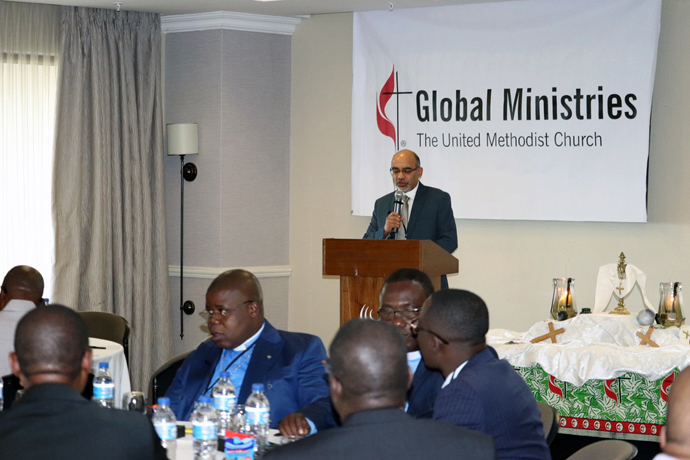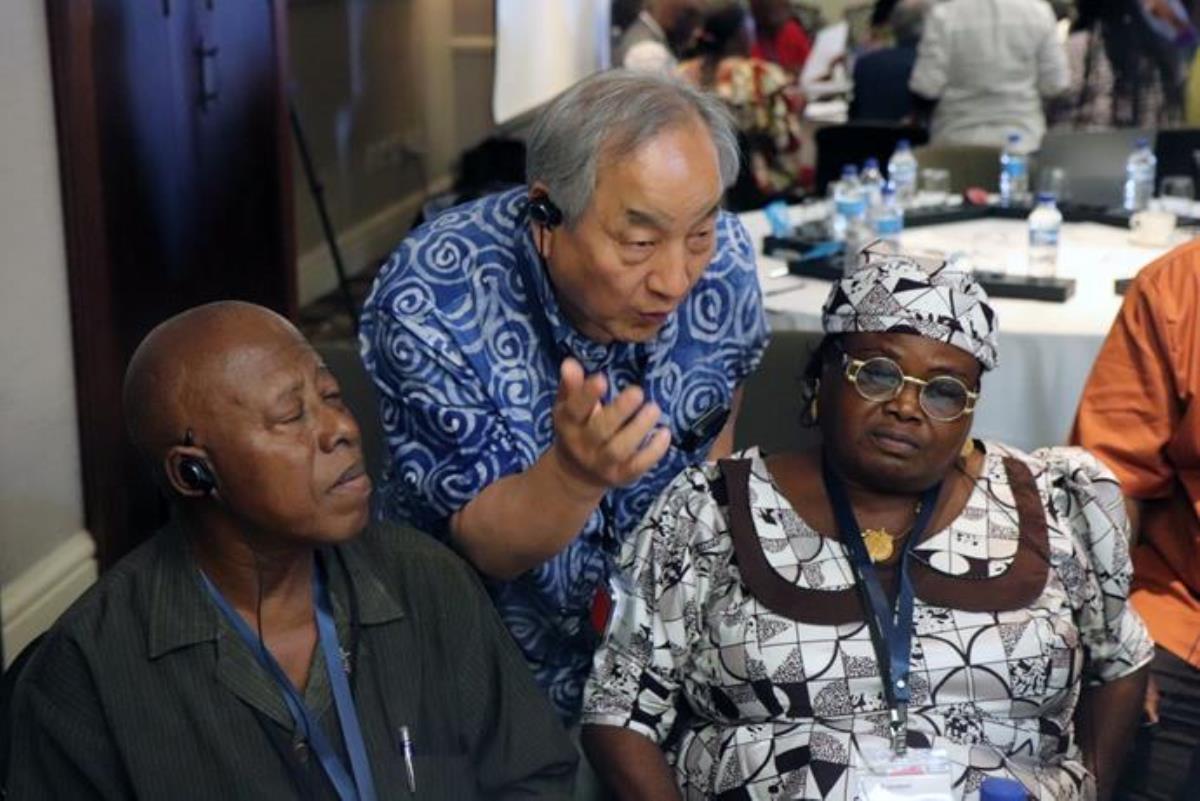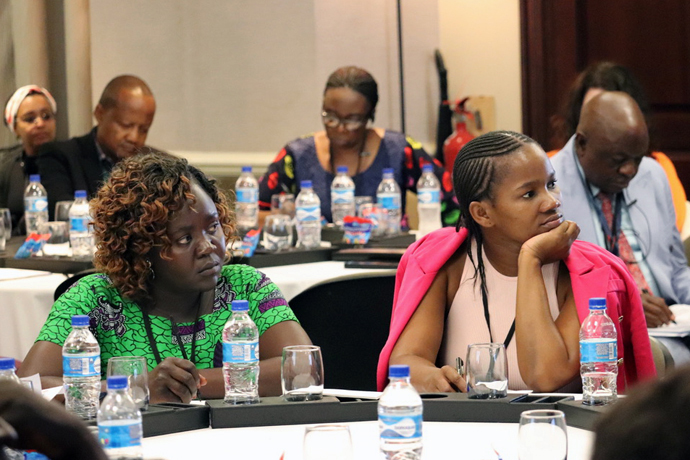
Key points:
- The United Methodist Church is transforming from a missionary church to a missional church, said Roland Fernandes, Global Ministries’ top executive.
- The mission agency is planning several conversations focusing on its programs this year.
- Grieving is important during times of turmoil, such as the pandemic and the Rwandan genocide, said the Rev. Reggie W. Nel, keynote speaker.
More than 80 delegates and partners from Africa met with United Methodist Global Ministries staff to discuss the future of mission on the continent, as the denomination moves from being a missionary to a missional church.
The agency’s top executive, Roland Fernandes, said the April 17-19 Africa Mission Partners Consultation in Maputo was one of several conversations planned for this year that will focus on the agency’s programs. Six bishops from around Africa attended the consultation.
“The meetings will look at what we are doing (and) what should we be doing as we look at 2024 and beyond,” Fernandes said. “We can only do that by listening to and learning from our partners; we cannot do that on our own. The whole purpose is for us to be able to listen and engage our partners in Africa in the true spirit of mutuality.”
He said it is important for the agency and its partners “to treat each other as equal partners and see what both have to shift together to continue to define mission in the future.”
“We are already transforming to being missional if you look at the work we do with the health boards,” Fernandes said. “We don’t run the health boards; they are being empowered by Global Ministries. Even with the Yambasu Agriculture Initiative, it’s local programs which are being supported. The conferences have their own strategic plans and the meeting was to discuss how we can work together and support them.”

The Rev. Reggie W. Nel, dean of the Faculty of Theology at Stellenbosch University in South Africa, said while the missionary church was in charge of all programs, a missional church is “missio Dei” (the mission of God) and led by the Holy Spirit. He emphasized it is time to decolonize the church and get rid of the “mother church and daughter church” concept established by pioneer missionaries.
“A fundamental question is whether we as children of a colonial missionary ecclesiology are willing to open ourselves up to the deep work of God as the Holy Spirit, or are we stuck in a superficial and perhaps an elusive second-hand performance of our own agents in building God’s kingdom?” Nel asked.
“Missiologically I would argue that, in the first place, we must consciously accept that we all come from a place with a personal and social history (collectively as an organization or community) that needs to be acknowledged and affirmed and held in creative tension,” he said. “It is not the one (personal) or the other (social), or the one over the other.”
Nel said grieving was important during times of turmoil such as the COVID-19 pandemic and the Rwandan genocide. “There remains a place for bouncing back before bouncing forward. I would also add in between these backward and forward bouncing movements, the notion of digging ‘deep’ to simply allow the depths of the grief to overwhelm us, to let us fall deep.
“This is also relevant in our quest for discerning an appropriate missional ecclesiology for our time — a time of the plague and therefore, disruption, trauma, loss. The moment was not only personal, individualistic; it was communal, social,” he said.
Bishop Daniel Wandabula of the East Africa Episcopal Area thanked Nel for analyzing the situation prevailing in Africa. “It’s not an easy task getting to understand where we are, how we got here and how we can get out of this situation.
“We must be a church that belongs to the Lord and does his will. We are part of the whole story of creation from beginning to end,” he said.

Bishop Mande Muyombo, who leads the North Katanga Area that encompasses parts of Congo and Tanazania, said the African church wanted to be decolonized and make its own decisions. “(The late) Bishop Muzorewa (of Zimbabwe) said we have to preach the gospel that decolonizes the mind because for so long we have been going through a traumatic experience.
“The need for grief work is critical,” Muyombo said. “We have to make mental health of our leadership a priority. If we are going to influence our people, we need to be liberated in our own leadership style. I am so proud of my colleague bishops because, despite the challenges, churches are being built and a lot of work is being done.
“As Africans it is difficult to live outside of our own cultural values,” he said. “In the Congo, we will continue to be faithful to our cultural values as marriage is defined in our own cultural heritage. But at the same time, we do not want to be used as proxies. … Ubuntu requires us to recognize human dignity in every human being who has been created by God,” he said, alluding to the human sexuality debate within the denomination.
Other bishops attending the event were John Wesley Yohanna of Nigeria, Warner Brown Jr. of Sierra Leone, Daniel Lunge of Central Congo and Joaquina Nhanala of Mozambique.
Global Ministries is engaged in supporting missionaries, evangelism and church revitalization, global health, and humanitarian relief and recovery — and is running 17 programs.
The Maputo meeting is not the first time Global Ministries has called a consultation of its partners throughout Africa, though it is the first in a few decades. It held consultations with African partners in 1961, 1974 and 1977. The 1960s and ’70s were a time of great challenge for the church and societies in Africa.
Fernandes noted that a write-up of the 1961 consultation said, “It was held in a time of uncertainty when it would seem that no sure future lay before the church.”
Chikwanah is a communicator of the Zimbabwe East Conference. News media contact: Julie Dywer (615) 742-5470 or newsdesk@umnews.org. To read more United Methodist news, subscribe to the free Daily or Weekly Digests.



